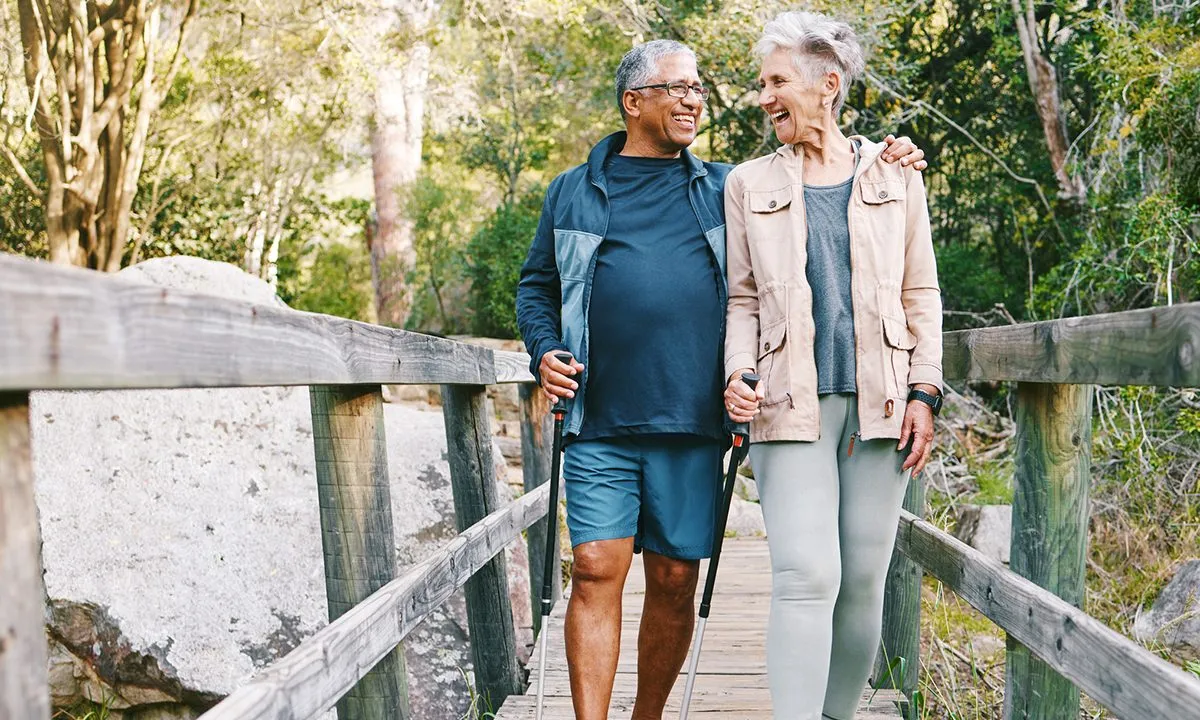

More and more people are staying fit and active at ages that used to be considered old. We joke that “50 is the new 30,” and “70 is the new 50,” but for many people these youthful levels of activity are possible.
Videos by Outdoors
A 93-year-old man just climbed Yosemite’s Half Dome, and a 77-year-old woman finished the Appalachian Trail (AT). A couple of years ago, Sunny Eberhard, “Nimblewill Nomad,” became the oldest person to thru-hike the AT, completing it at age 84.
Sure, these people are probably out of the norm, but it’s possible for almost anyone to preserve more strength, range of motion, and a general health and fitness level that is above the average. I, at age 75, recently did a hike of the 4800-mile North Country Trail.
It’s easy to feel discouraged. After age 50, everyone begins losing muscle mass. Some sources say the loss is, on average, 3% a year. But this rate is not inevitable or irreversible. We all just need to be more proactive about slowing the aging process.
Here are10 ways to produce positive results, leading to an active life in our later years. The ideas come from a variety of respected sources and from my own experience.
1. Eat Well

There is a huge amount of truth in the saying, “we are what we eat.” Sure, it’s easy to get enough calories (usually too many) by eating just the foods we like best. Hamburgers and french fries are the American answer to just about any food question. Some people would be happy to eat chips or candy bars almost exclusively. But we all know that these foods are not nutritious. If we want to have healthy muscles, skin, nerves, and brain matter, we have to eat better.
We don’t have to give up all sweets and burgers (unless there is a particular medical condition that requires it), but muscles need protein, and the vitamins and minerals in fruits and vegetables are essential for brain, organ, and nerve health. Various diets decree you should cut out fats, while others suggest you cut out all carbohydrates. No one seems to have all the answers. I’m no nutritionist, but it just makes sense to eat a balanced diet.
The foods we choose will affect our longevity, mental acuity, health, and strength.
2. Don’t Stop Moving
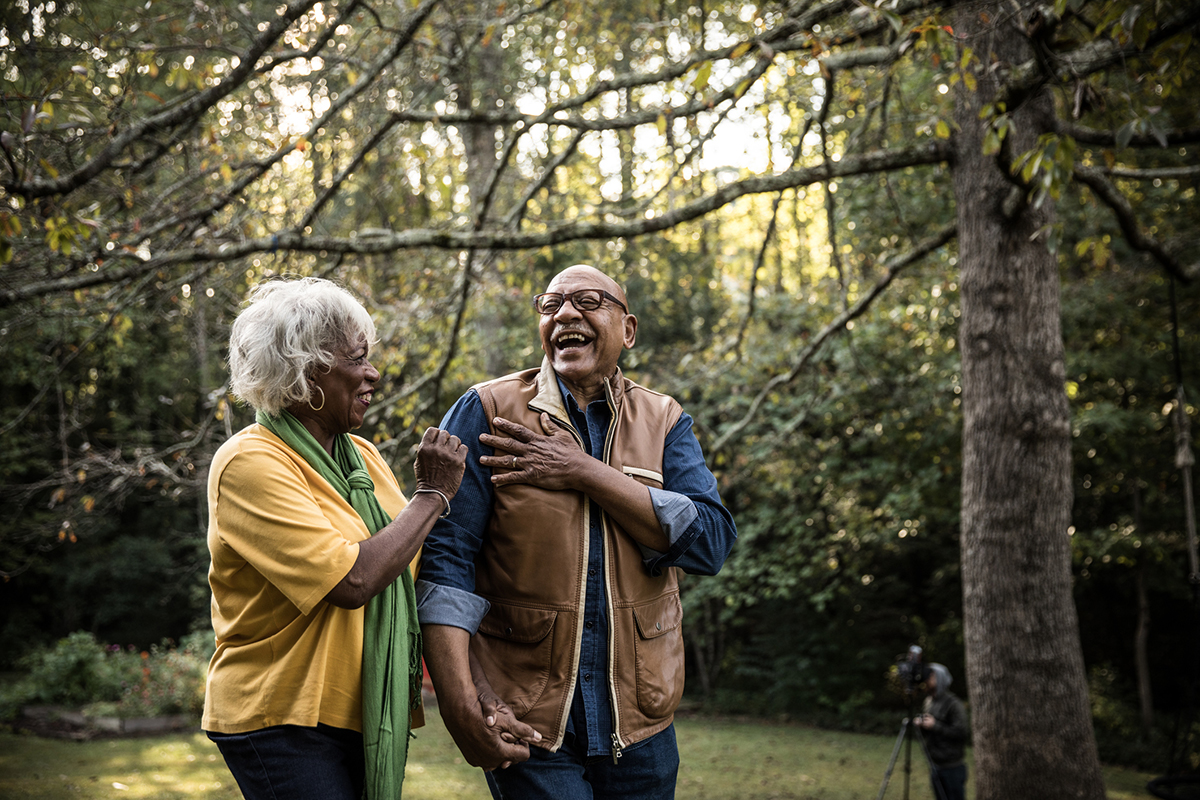
Of course, this assumes we were spending a fair amount of time in motion before we hit some milestone birthday. Don’t despair; it’s possible to increase the activity level if you’ve been more sedentary, but it must be a conscious choice to either continue or increase our movements.
3. Strength, Flexibility, Balance, Stamina
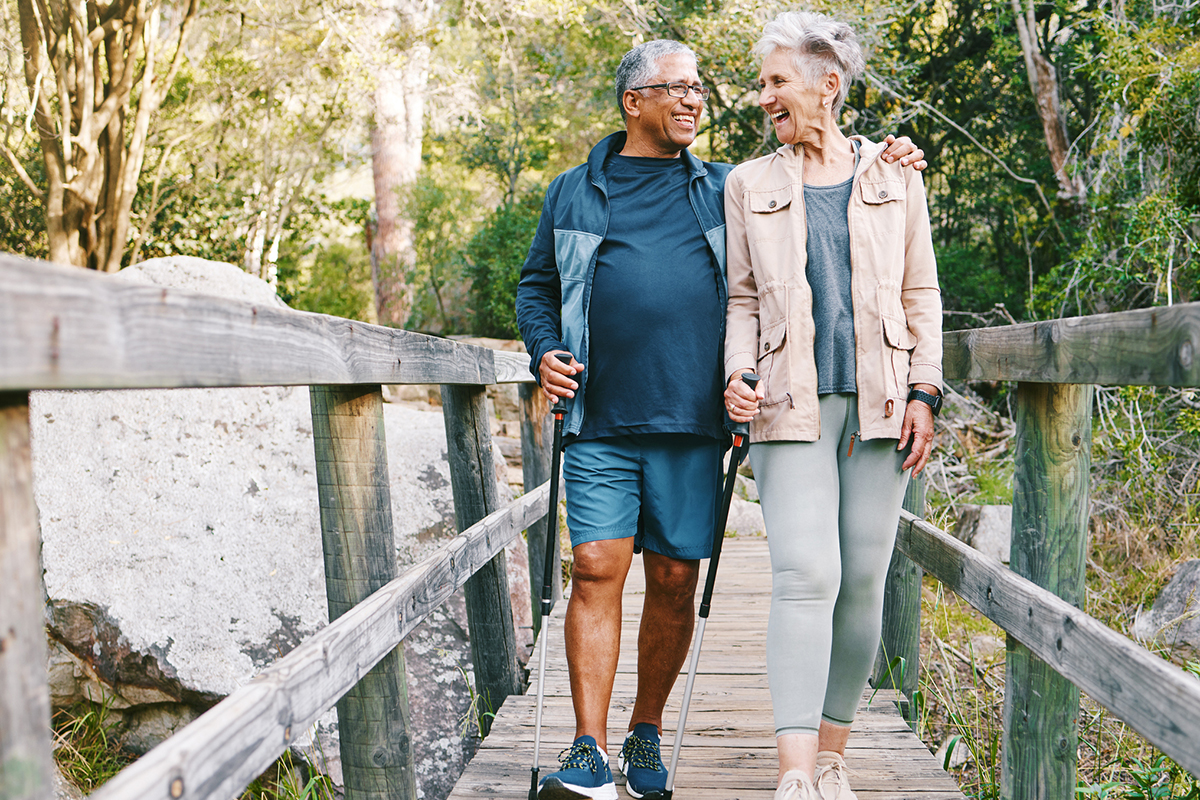
It’s easy to concentrate on one area of fitness while neglecting other important aspects of it. Some people have invested heavily in being a muscularly strong person. They easily gravitate toward weight lifting and resistance exercises to stay in shape. However, this may result in a muscular body that has little flexibility. On the other hand, some people focus on exercise regimens such as yoga, which promote flexibility and balance. While these are certainly helpful, some strength training should be a part of the weekly routine. Aerobic exercises such as running, cycling, or rowing are also great, but here the focus is on stamina.
Keep all the facets of fitness in mind when choosing an exercise plan.
4. Use All Your Muscle Groups
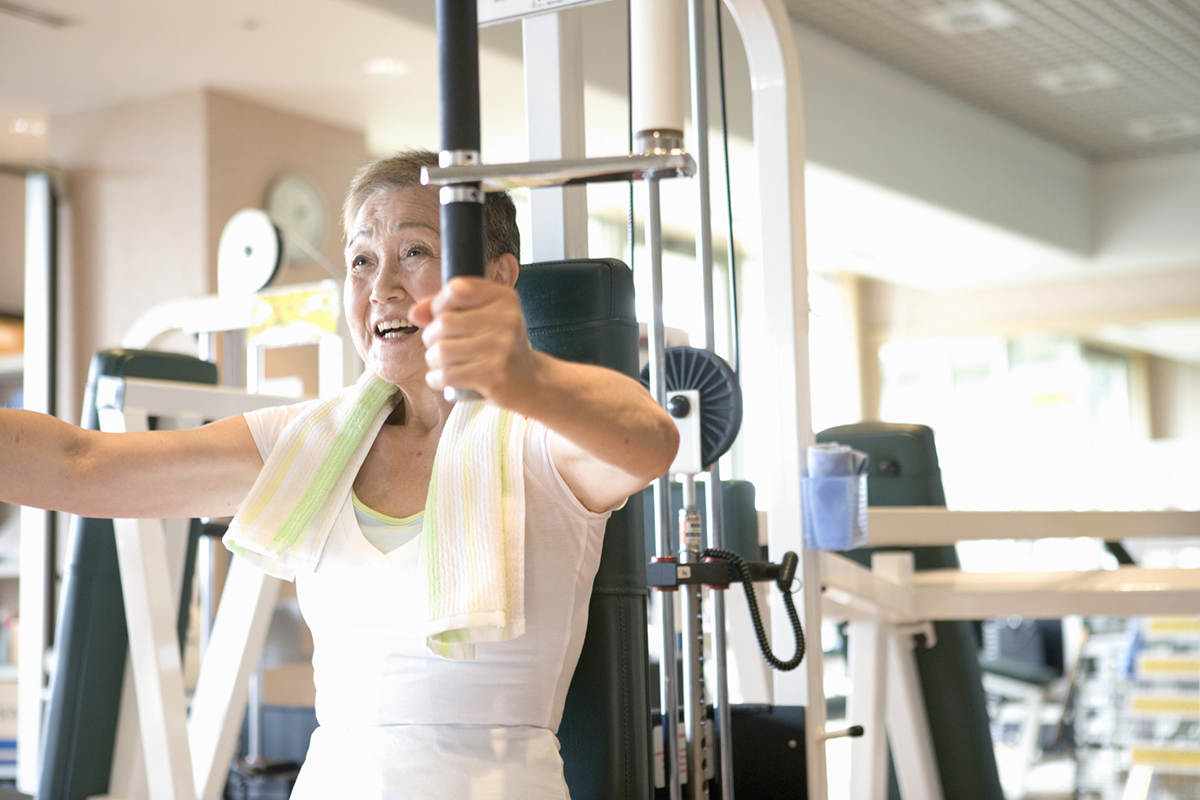
Similar to the previous point, keep in mind that all the muscles need attention, not just the legs or arms. Walking is great exercise, but walking to the exclusion of other activities won’t preserve upper body strength.
Hearts need cardio workouts, arms may need some work with weights, legs benefit from cycling or walking. Swimming helps tone many muscle groups.
And don’t forget the core. In fact, although we generally tend to neglect exercising the core (abs, trunk, pelvis), the benefits of keeping the core strong are essential. A solid core improves balance and stability. It will make other exercises easier to complete.
A weak core means low endurance, fatigue, and can even lead to injury.
5. Set Attainable Goals
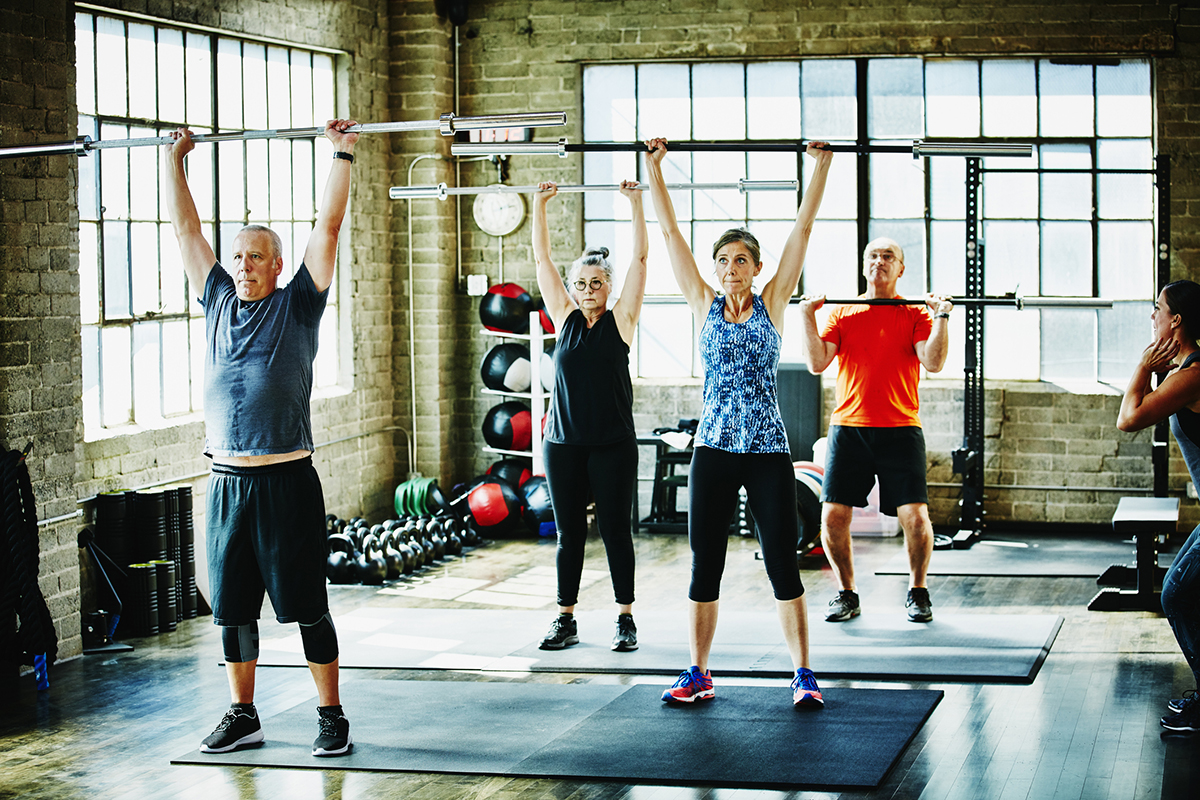
Perhaps a recent surgery prevents hiking. Set a goal to walk 10 steps, then 25, and then 100. Work up to a half-mile. A friend has progressed in just three years from only being able to transfer from a wheelchair to walking 5 miles at a time.
Another woman I know, age 78, walks 1,000 miles a year. This is easily attained if she takes a 3-mile walk almost every day, and she can’t wait until October to start.
Be realistic. Most of us make ridiculously optimistic resolutions. Instead, try saying, “This week, I can walk a total of 3 miles and do 10 reps each of three exercises,” if that is in line with your capabilities. Doing some small things in a variety of disciplines is way better than getting discouraged at unmet goals and doing nothing.
Do whatever you can, no matter how little. If you can’t walk, try water exercise or exercises you can do while seated. If you can’t walk far—perhaps bothered by plantar fasciitis—bicycle or kayak instead. If you can’t jog a mile, jog around your house once or twice.
If you don’t have time, energy, or interest in hiking a long trail or cycling around a Great Lake, join a virtual tour where you make small progressions at home toward completing the same distance as some remote adventure. There are programs like this available online, and many of them award medals or patches and may even provide video of the remote location to watch as you exercise.
6. Use Small Increments to Succeed

There are ways to get more exercise that don’t mentally intrude on a schedule the way a set “hour a day” can.
One example is to leave the car at the outer edges of parking lots when we shop or do errands. This alone can easily add many steps to a week. Another idea is to always take the stairs instead of an elevator. We can put the sack of groceries on the floor and bend over to pull out items as we put them away.
Exercise in the car. It’s easy to tighten abs and glutes even when we are driving. Roll neck and shoulders. Flex any joints not in demand for the task of driving.
Keep a set of hand weights by the toilet and do a few reps while seated.
7. Exercise Outdoors
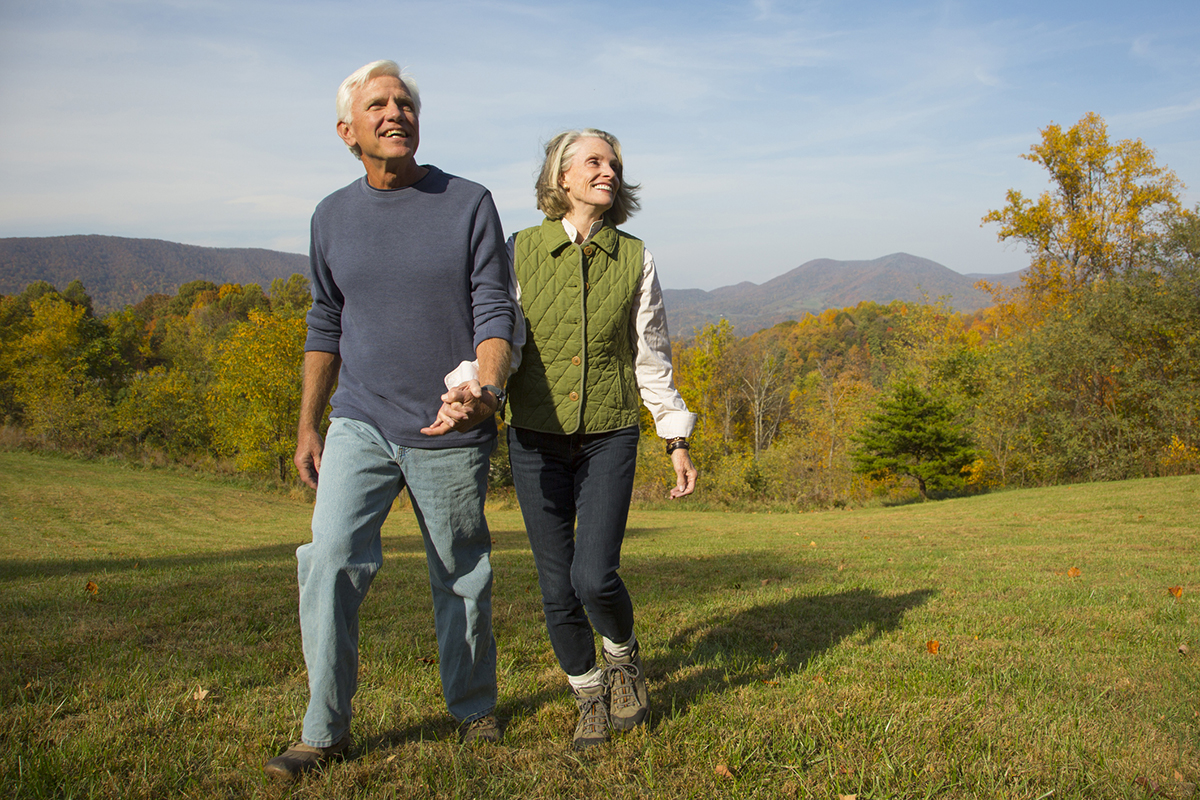
Scientific evidence is mounting that being outdoors is wonderful for our general health and well-being. Not only is it more interesting than staring at a wall while you walk a treadmill in a gym, it also smells and feels better. “Forest bathing” to immerse oneself in the experience of being in the woods, has been shown to improve mental health.
There is some evidence that suggests we gain in ways such as boosting our immune system, improving sleep patterns, and reducing inflammation by walking barefoot on natural surfaces.
8. Take Ibuprofen If Needed

Although no one likes to overdo the medicine, if a few ibuprofen are needed to continue to remain in motion, don’t be afraid to take them. As an anti-inflammatory, it allows us to keep moving. Not many of us over 65 are pushing ourselves to physical limits that lead to injury. Most of us would simply like to be able to come home and function after a hike.
9. Hobbies Can Help

If exercise for its own sake seems boring, that’s fine. There are plenty of activities that are going to keep various muscle groups in use. Gardening, pickleball, swimming, kayaking, cycling, dancing, and horseback riding quickly come to mind, but there are many choices. The thing to remember is to participate in a variety of activities so that we are using all our muscle groups.
10. We Don’t Have to Do It Alone
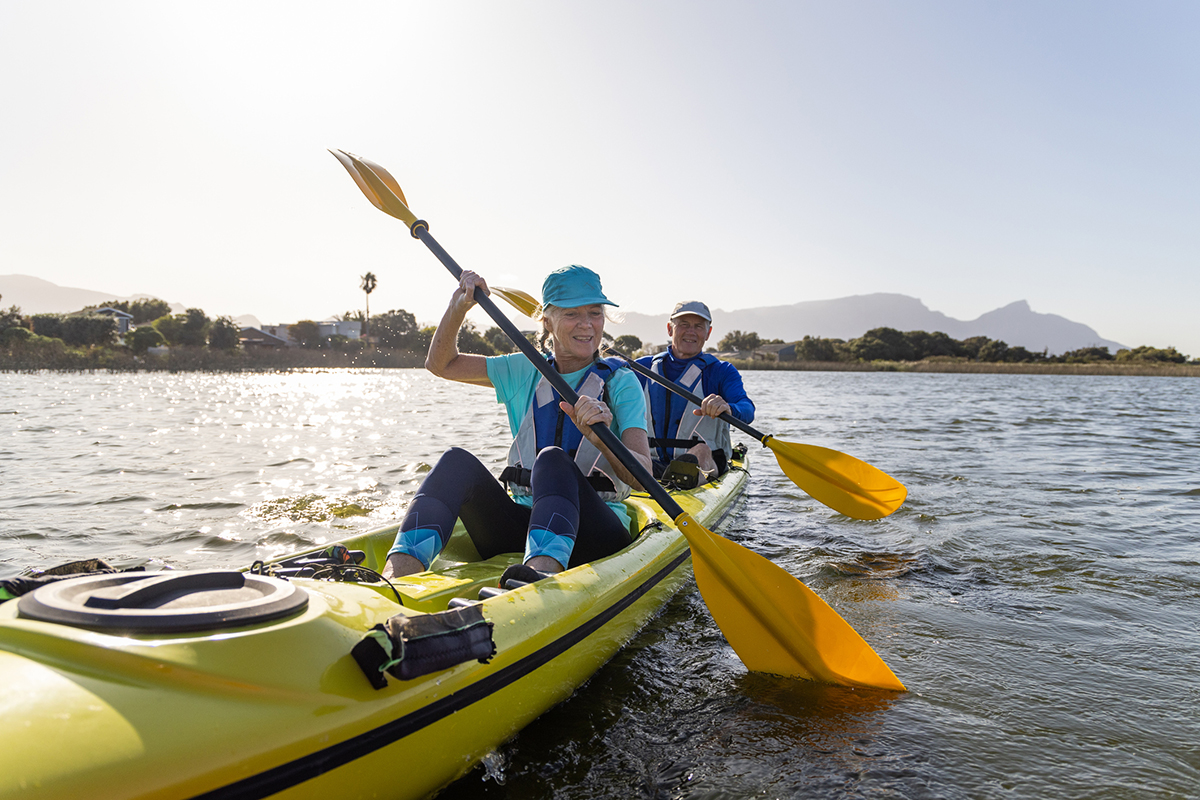
Very few people enjoy relying on their own self-discipline to accomplish goals. Instead, get some support.
Electronic gadgets are highly popular these days, such as watches that remind us to do so many steps, monitor our heart rate, or tell how many calories we burn. These do help motivate some people.
Probably more useful is to get involved with group activities that appeal to you. Hiking or cycling clubs usually have regular outings of various lengths. More and more, senior centers are planning activities beyond low-impact exercise classes, like kayaking and dancing.
We can all do something that will stretch our limits a bit and keep us moving, even as we get older. Balance our diets, strengthen all of our muscle groups, and work toward maintaining strength, balance, flexibility, and stamina. Success in these areas will keep us moving through our later years.









